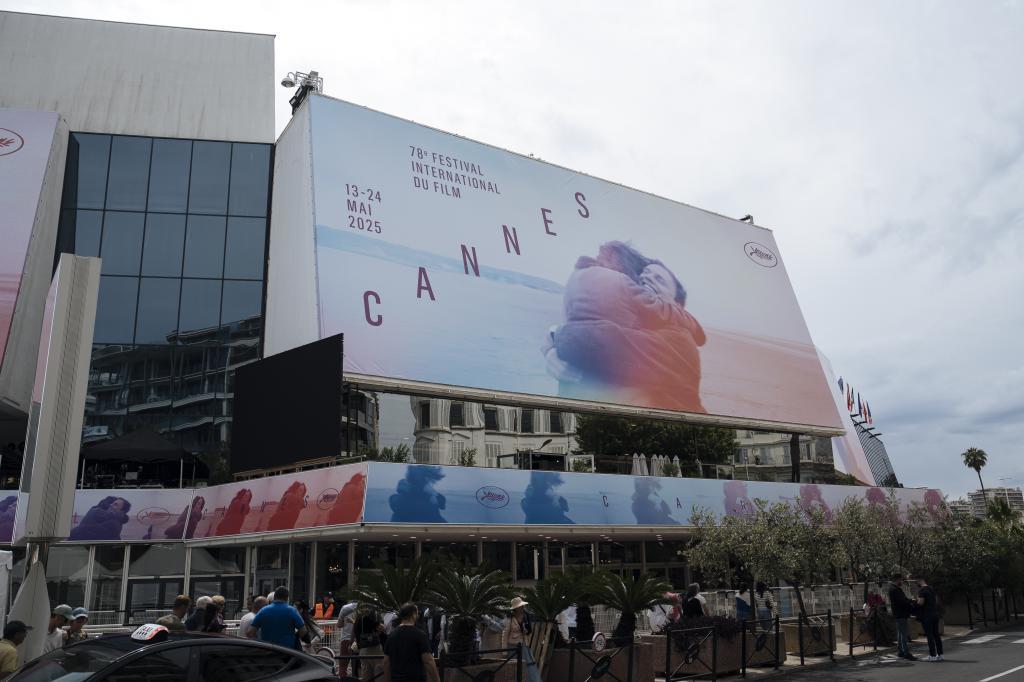A Romanian named Catalin Mitulescu wins the Palme d'Or in Cannes with his short film Trafic and a new wave is born; the new wave of Romanian cinema that would reach the other Palme d'Or -- the big one, the one for feature films -- in 2007 with 4 Months, 3 Weeks and 2 Days. Its director Cristian Mungiu was just the first of a list where familiar names like Cristi Puiu, Radu Muntean, or Corneliu Porumboiu would appear. All Romanians, all validated, so to speak, in the rising tides of the French Riviera. Cannes gives and takes reasons, inaugurates times, and, painful as it may be, issues certificates of quality. Just announced the official selection for 2025, American critic from Variety magazine Peter Debruge embarked on a complex analysis of the selected titles, noting the abundance of American entries and the increasing influence of the French event in Hollywood, acknowledging that there were only two authors he knew nothing about. Namely: Carla Simón and Oliver Laxe. The two Spaniards.
It is not clear whether Romería and Sirat, the respective films of each that are part of the competition starting on Tuesday and about which much of the international critics know nothing (despite their authors accumulating international awards both in Berlin and in the parallel sections of Cannes), will inaugurate a new era. But there they are. With the new era. When in 2009 Pedro Almodóvar and Isabel Coixet coincided on the honor list, each came from a different place riding their own wave with their careers well established. Even the youngest intern at Variety knew who those two Spaniards were. This time, as it has become clear, that is not the case. And, most likely, when the reviews are written, many will strive to point out coincidences and describe common attitudes.
Whether it's a refined taste for realism in the roughness of the image, or an almost suicidal tendency for introspection, or the use of genre rules in a peculiar and excessively personal way, or an open investigation of the wounds of memory, or cinema as a lived experience... Laxe stated not long ago that he felt part of the same tribe as Carla, and Carla responded that she recognized in her colleague the same collaborative and non-hierarchical way of understanding the profession and cinema. Let's leave it at New Wave, a new wave, by the way, very Galician (Laxe is Galician and Simón's film takes place in Galicia).
Furthermore, the Cannes that is now beginning starts with the clear memory of Anora as a reference and example not so much to beat as to emulate. The film by Sean Baker that won the last Palme d'Or managed months later to win the Oscar for Best Picture. It was the second time in six years -- and only the fourth in its 78-year history -- that something similar happened. But in the last three years, the films nominated for the Academy Awards have emerged from the Cannes catalog. Triangle of Sadness (2022) and Anatomy of a Fall (2023) are two of the most prominent examples of a trend that, after the success of Parasite in 2019, culminated in the four statuettes of Anora and the nominations for Emilia Pérez, The Substance, The Apprentice, and Flow ; a peak reached in 2024. "Cannes, like the Oscars, are now global, neither one nor the other are French or American," commented Thierry Frémaux on Monday at the presentation, just to close and even celebrate the circle.
Consequently, it seems that this year's selection is designed, beyond the Spaniards and their waves, to ensure that neither the trend nor the party stops. Both the festival itself and international distributors have shifted their preference from Venice or Toronto to the Croisette as a launching pad. Thus, in the upcoming event, among the most prominent titles that seem to respond to this mechanism very attentive to the visibility provided by an increasingly international and diverse Oscars would be Wes Anderson's new work The Phoenician Scheme, a spy thriller with unscrupulous millionaires starring Benicio del Toro and Mia Threapleton (Kate Winslet's daughter); or Eddington by Ari Aster, with Joaquin Phoenix and Pedro Pascal as main attractions of a project by definition indefinable; or, why not, Nouvelle Vague, by the hyperactive Richard Linklater in his second film of the year after Blue Moon, seen at the Berlinale. And who knows if Spike Lee's latest work, Highest 2 Lowest, a version of Akira Kurosawa's High and Low, does not follow the same Oscar-worthy concern.
And without losing sight of the new film by the Japanese director of the sad and surprising Plan 75 Chie Hayakawa, who returns with Renoir, or the Brazilian Kleber Mendonça Filho (Doña Clara), now presenting Secret Agent, or the author of The Worst Person in the World, Joachim Trier, returning with Sentimental Value. And alongside them, two eternal classics: Jafar Panahi and the Dardenne brothers, who respectively premiere It Was Just an Accident and Young Mothers.
And of course, Mission Impossible: Final Sentence, the conclusion of probably the most joyful and complete action saga that the capacity for amazement has been able to produce. And that is not so much a wave as a true tsunami. And so on.
